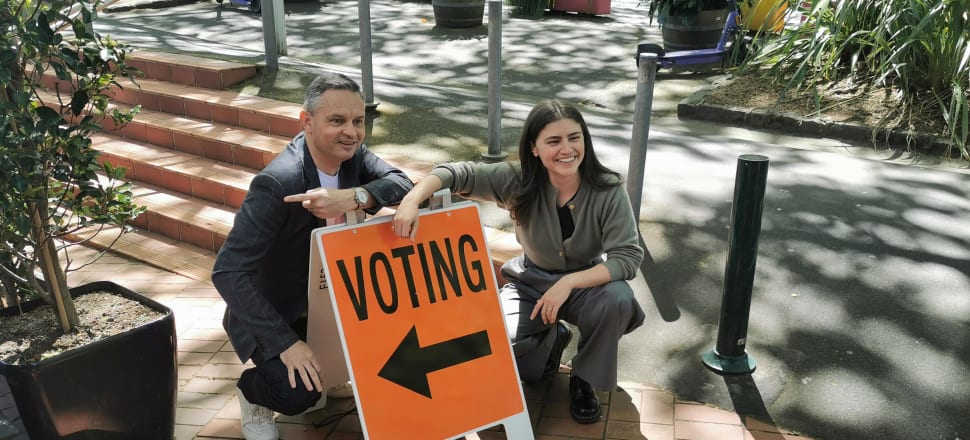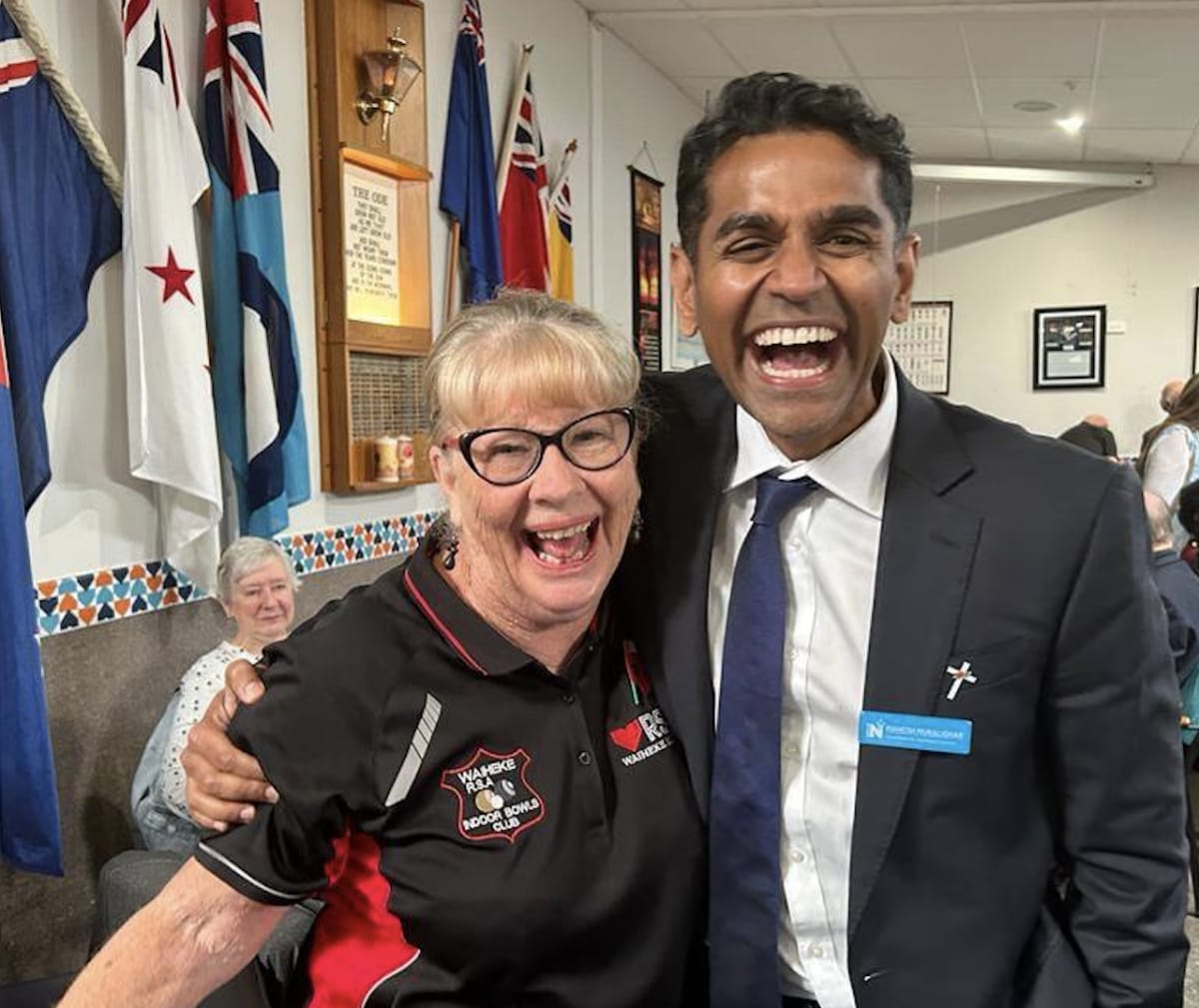
Green MP Chlöe Swarbrick pulled off a major electoral coup to win Auckland Central in 2020 but without the cannabis referendum to encourage younger votes to the polls she faces a tougher battle this election
Chloe Swarbrick is only the second Green Party candidate to ever win an electorate seat. The first being former leader of the party, Jeanette Fitzsimons, who won Coromandel in 1999. Fitzsimons lost the seat at the next election and Swarbrick will make history if she manages to retain Auckland Central.
Swarbrick's win in 2020 was remarkable given the Greens' candidate had polled just under 10 percent in 2017. Between the two elections the number of enrolled voters in the electorate increased by 5000 and the number who voted jumped from 30,433 to 36,635.
Lara Greaves, associate professor in political science at Victoria University of Wellington, thinks the cannabis referendum motivated young people to get out and vote.
READ MORE: * National, Labour eye up Auckland Central * Student rent woes plague Auckland Central
“The turnout was so high. In the 20 to 24 group, it was 88 percent. That was higher than the 60 to 64-year-olds which are usually the biggest voters. The Greens did something special in this electorate and I think the cannabis referendum really helped Chlöe. The question is can they do it again?”
Swarbrick’s own unique campaign slogan in 2020 was 'Three ticks green'. Her campaign manager then and now, Leroy Beckett, tends to agree with Greaves' analysis.
“You have to give young people something to vote for,” he says.
With no 'weed' factor this time round we asked Swarbrick if she felt the turnout from young voters would be as high.
“Honestly? Who knows. The day after the last election we sat down in our campaign office and tried to put our finger on what it was that we did (that won the seat) and we couldn’t identify one specific action ... whether it was some of the creative events we did in the form of the drag show or the comedy night or the door knocking.”
Swarbrick’s closest rival, National’s Mahesh Muralidhar, has put a lot of faith in door knocking. He has done more than 8000 door knocks, and like Swarbrick has spent time campaigning in the electorate’s Hauraki Gulf islands – Waiheke and Great Barrier.
The Taxpayers' Union Curia Poll taken on September 24 has Muralidhar and Swarbrick locked in a close race.
The Green MP had 26 percent of the electorate vote compared to her National Party rival on 24 percent. National was well ahead in the party vote – 30 percent compared to 19 percent for the Greens.

The poll showed the dominant election issue in the electorate is law and order – or the lack of it. A third said crime was the biggest local problem, with public transport the second most identified problem at 10 percent.
This finding is a boost for Muralidhar who has campaigned hard on law and order from the beginning of the campaign.
“Chlöe's position is that there is no evidence that being tough on crime works in terms of long-term reduction. But I think we need short-term and long-term solutions. Short-term crime is like a fresh wound – blood is gushing out of it, and we’ve got to stop the bleeding.
“K Road, the CBD and Wynyard Quarter have been really hit. University students have been hit. There are plenty who fear for their safety. It is hard for them to say crime is an issue because safety is seen as an old people’s problem. You expect students to be protesting about high rents and landlords and fighting the system, but I think they feel nervous for their safety too.”
Muralidhar is also targeting the migrant vote. Auckland Central has more immigrants from the Middle East, Latin America, and Africa together than any other electorate and a big Asian population.
Muralidhar, who came to this country on his own as a 14-year-old to study at a Napier high school, says he grew up like most Kiwi kids, watched Warriors games on TV and had little contact with migrant groups but now understands their importance to New Zealand.
“What we often don’t see is the big group of successful immigrants. They are educated, fiscally conservative immigrant Kiwis and they are a very big part of New Zealand’s future. The media doesn’t get to know this group. There is still a huge focus on Europe when the largest economic player here is China.”
Auckland Central was once a safe Labour seat but went to National’s Nikki Kaye in 2008. Labour's chances of getting it back seem remote with candidate Oscar Sims languishing on 12 percent in the Curia poll.
Swarbrick points out that the seat has been held by a woman since Richard Prebble (then Labour) lost it to Alliance’s Sandra Lee 30 years ago.
“There is a notable tonal difference this time (with male candidates standing for National and Labour) in the campaign. It is more confrontational whereas last time there was a lot of camaraderie between the (three women) candidates.”
Surprisingly, Swarbrick says her good relationship with one of the country’s most combative politicians, Auckland Mayor Wayne Brown, is a reason voters should stick with her.
“Wayne and I have come to a consensus on a lot of things. We both like to get things done. I was against his budget cuts, and we put in a submission opposing them, but I think he respected that. We share the frustration of dealing with the parliamentary system and agree that boots on the ground is the way to solve a problem.”
The Curia poll showed 29 percent of Auckland Central voters were still undecided in September. Both Muralidhar and Swarbrick believe a large chunk of those undecideds are in the 18 to 25 age group and are focusing on winning them over.
Muralidhar, who says his involvement in tech startups means he is now comfortably off financially, recently told Auckland University students attending a rent protest, “I used to sleep in the student common room. I came out (of university) with an $80,000 student loan. I know what it is like, and I will fight for you.”
Swarbrick cast her vote at Auckland University’s polling station and urged students to take part in the democratic process. Parliament’s youngest MP told Newsroom that representing Auckland Central has always been her biggest goal.
“This is what gives me meaning in politics ... I so deeply, deeply, love Auckland ... What I am interested in is helping people realise that if we work together here, we can do some really creative and innovative things without relying on Wellington to come to us to identify that problem and solve that problem. People need to believe in something bigger and that bigger thing is all of us and the stuff we can make together.”







